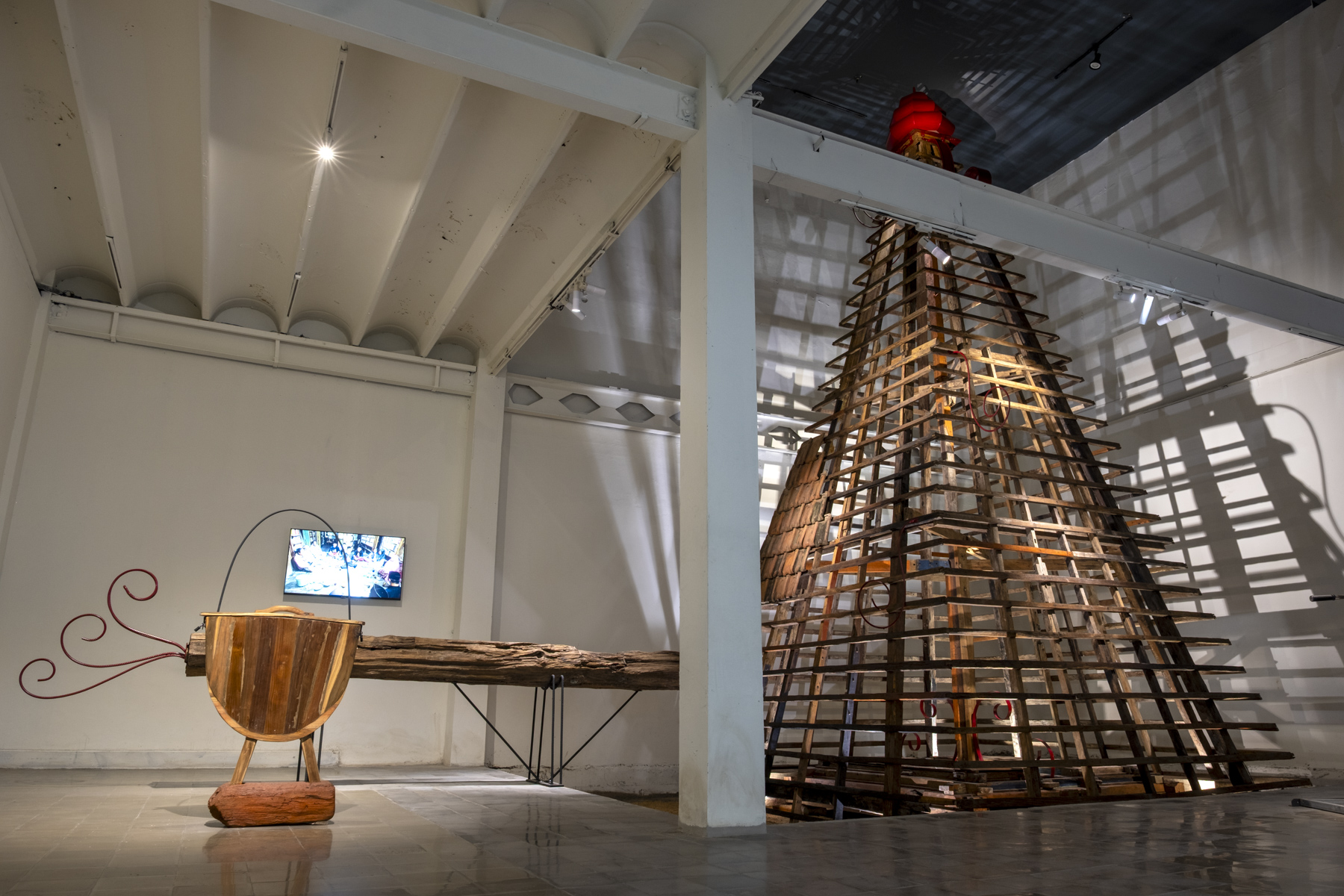
Tubuh Amalan
2025 | mosque canopy with scrap wood, cast iron, scrap iron plates, large pieces of wood, frog roof tiles, 355 x 355 x 728 cm; wooden post, 30 cm diameter, 400 cm long, cast iron support, 16 mm; charity box 90 x 55 x 23 cm; 3 photos, 50 x 40 cm each and video of songs of practice, 12'

Tubuh Amalan
2025 | mosque canopy with scrap wood, cast iron, scrap iron plates, large pieces of wood, frog roof tiles, 355 x 355 x 728 cm; wooden post, 30 cm diameter, 400 cm long, cast iron support, 16 mm; charity box 90 x 55 x 23 cm; 3 photos, 50 x 40 cm each and video of songs of practice, 12'

Tubuh Amalan
2025 | mosque canopy with scrap wood, cast iron, scrap iron plates, large pieces of wood, frog roof tiles, 355 x 355 x 728 cm; wooden post, 30 cm diameter, 400 cm long, cast iron support, 16 mm; charity box 90 x 55 x 23 cm; 3 photos, 50 x 40 cm each and video of songs of practice, 12'

Tubuh Amalan
2025 | mosque canopy with scrap wood, cast iron, scrap iron plates, large pieces of wood, frog roof tiles, 355 x 355 x 728 cm; wooden post, 30 cm diameter, 400 cm long, cast iron support, 16 mm; charity box 90 x 55 x 23 cm; 3 photos, 50 x 40 cm each and video of songs of practice, 12'
